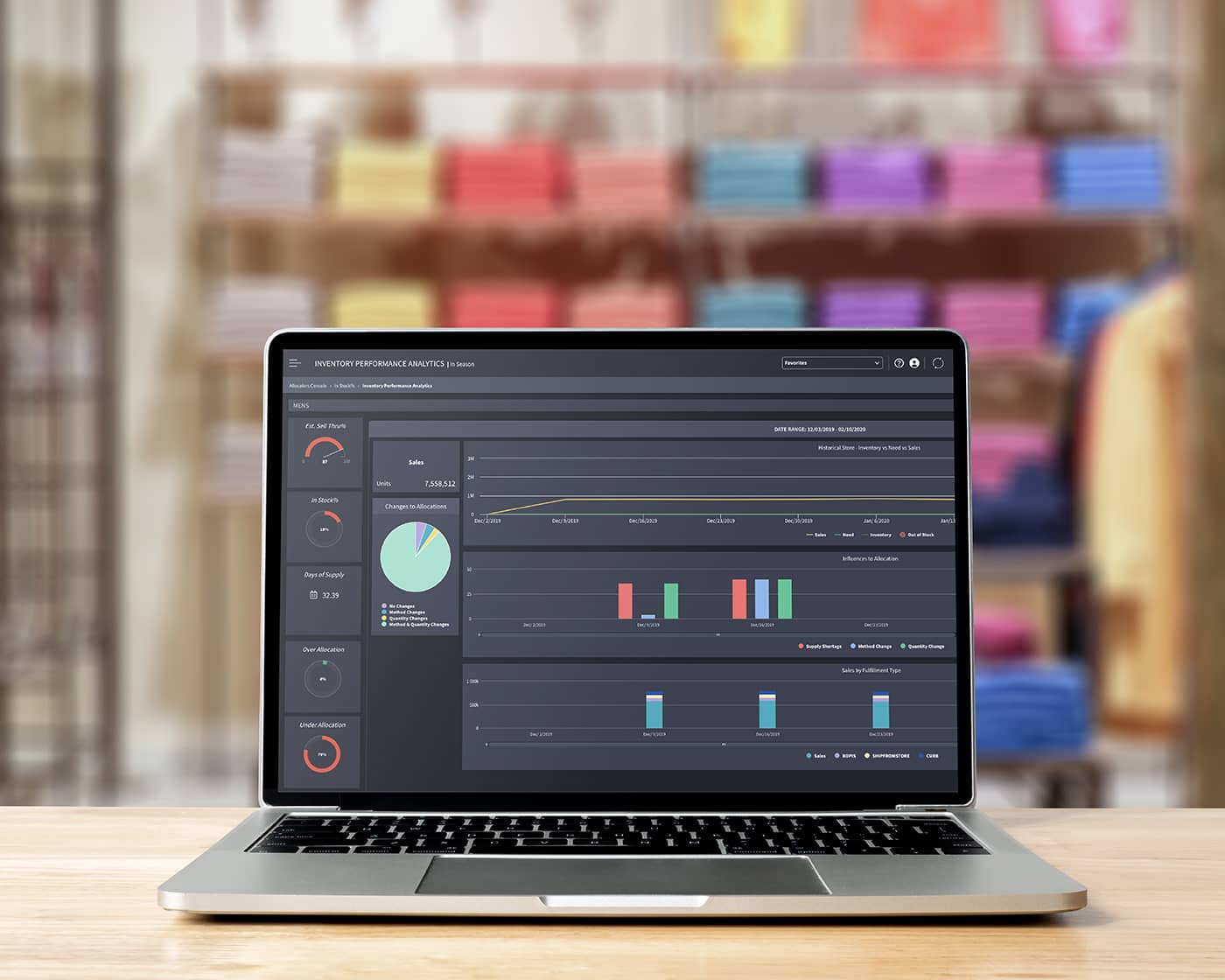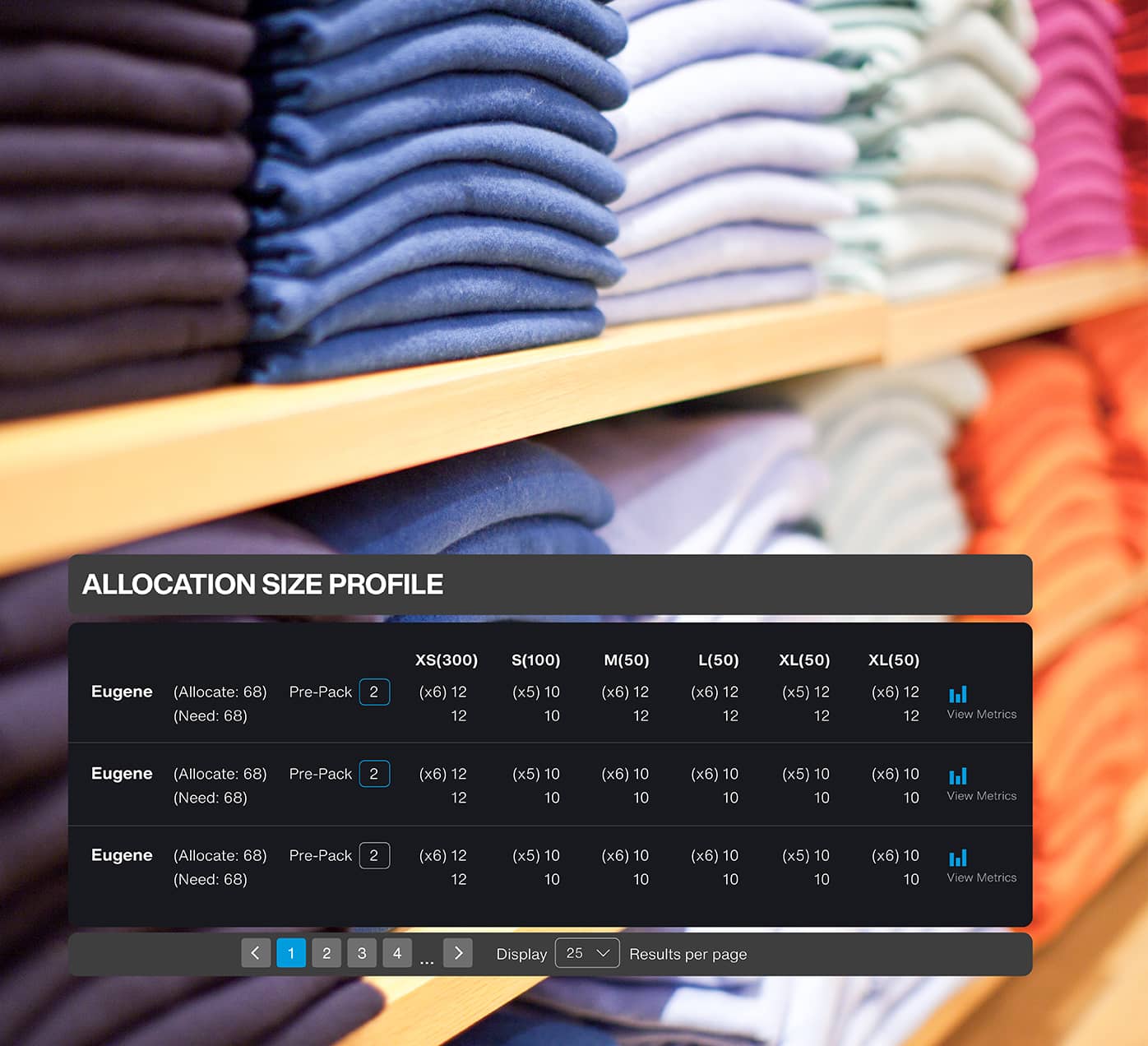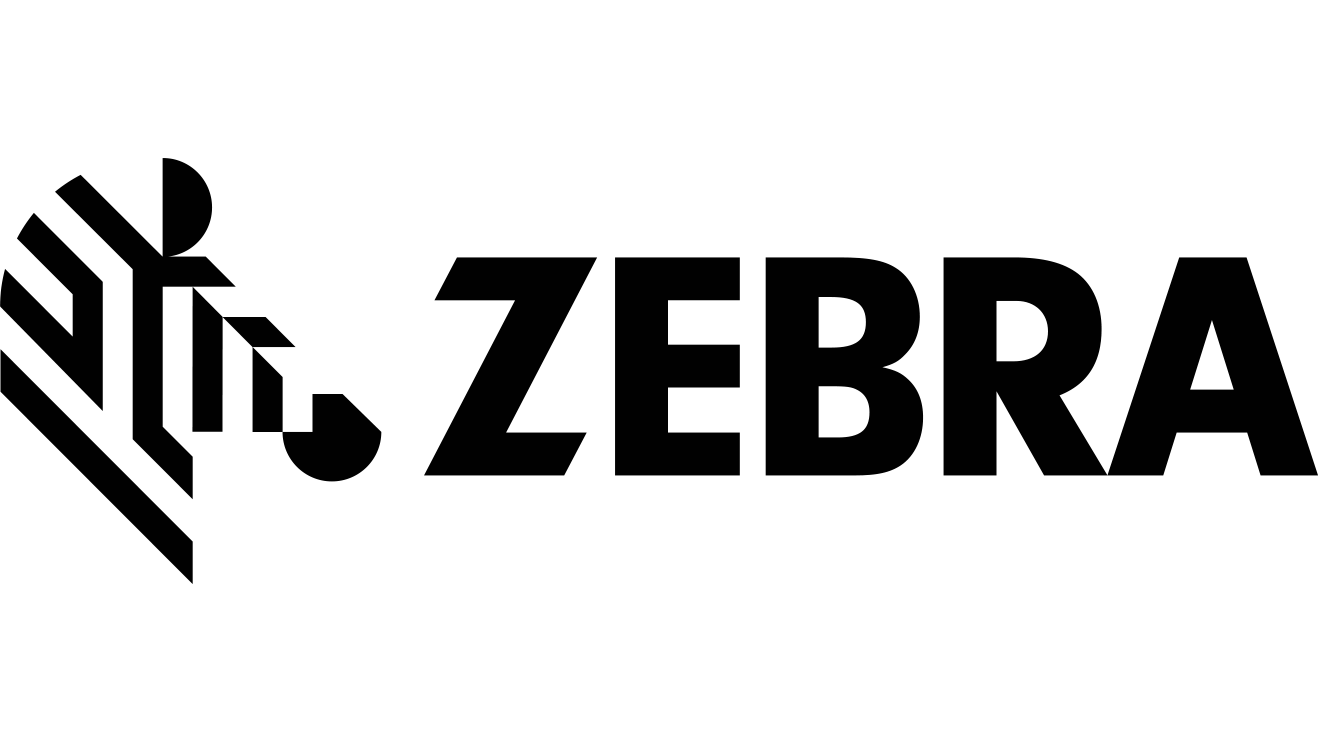Inventory allocation
Reduce product markdowns and stranded items by managing your short-lifecycle inventory more accurately with Manhattan Active® Allocation.
Contact us
The perfect distribution. Every time.

Logic tuning
Fine-tune the app to fit any business scenario.
Improved fulfilment
See, learn and adapt your highest-performing fulfilment strategies.
Adjustment simulations
Simulate inventory performance based on your allocation strategy.

Unified fulfilment
Include all store-based fulfilment of digital demands.
Unified performance monitoring
Monitor performance by channel—and adjust your allocation as needed.
Unified allocation optimisation
Get the best allocation over all channels—including stores.

Minimise price reduction
Fewer redirects, fewer end-of-season markdowns.
Decrease product expense
Less stranded inventory, lower financial risk.
Faster ROI
Lower cost of ownership plus faster return on investment.
Leverage AI and machine learning
Manhattan Active® Allocation leans into AI and machine learning to calculate your optimal allocation.
-

Understand what sizes sell
Size-optimisation algorithms help you align inventory with consumer demand.
-

Understand store clustering
Advanced machine learning groups inventory—all the way down to the store/style level.
-

Understand prepack selection
Retail allocation software selects the best prepacks based on expected demand patterns and size optimisation.
Meet demand across all channels
Access—and optimise—your entire network of inventory, demand patterns, traditional DC and store-based fulfilment.
-

Incorporate store-based fulfilment
Inventory distribution that factors in store-based fulfilment of digital demand.
-

See fulfilment impact
Segmentation of the impact of each store fulfilment on your inventory allocation.
-

Integrate with order management
Real-time integration—via microservice APIs—to any order management system.
Improve your demand forecasting
Gain a better predictive analysis—even for short-lifecycle products such as fashion.
-

Simplified modeling
Calculate the distinctive demand patterns of short-lifecycle merchandise.
-

Infused intelligence
When no demand history is available, machine learning identifies the demand patterns of similar items.
-

Dynamic feedback
Use embedded visual analytics to compare the forecast against actual sales.
Manhattan Active® Platform
A cloud-native, evergreen and extensible foundation engineered to handle the most complex supply chain networks in the world.
Composable microservices
API-first architecture with automated scalability, resiliency and availability. Every component is part of a shared application platform.
Innovation independence
Our low code, no code, your code development strategy means you pick what method of configuration and customisation works best for you—with as much support as you want or need.
Continuous updates
Every 90 days, all Manhattan Active solutions automatically receive new features and enhancements.
Everything works better with Manhattan solutions
Manhattan offers a complete breadth of solutions that when unified, provides total coverage for your supply chain commerce needs.

Warehouse management
Control demand, supply, labour and automation across your entire network with Manhattan Active® Warehouse Management.

Transportation management
Manage every carrier, rate, route and load with Manhattan Active® Transportation Management.

Point of sale
Empower store associates with Manhattan Active® Point of Sale, a POS built to turn the store into an experiential showroom, customer service centre and neighbourhood fulfilment point.
FAQs
What you’ll need to know about Allocation apps.
Matching available inventory to customer orders.
Allocation constantly balances high-priority orders against the need to minimise both stockouts and excess inventory.
Machine learning enables more efficient allocation.
Here’s why: Machine learning is able to handle the volume of data and increasing complexity involved in allocation. It is able to analyse huge amounts of data from multiple sources—including historical sales data, customer demand patterns and inventory levels—then identify trends and make more accurate predictions.
Using some—or all—of these factors, allocators can reduce both overstocks and stockouts:
- Accurate demand forecasting—for a clear understanding of customer demand patterns.
- Real-time visibility—to see up-to-date information about inventory levels.
- Flexibility—to respond to changes in demand and adjust allocation accordingly.
- Integration—with other systems, such as order management, shipping and accounting.
- Automation—for routine tasks, such as inventory tracking and reporting.
- Scalable systems—to handle fluctuating volumes of data.
- Data security—to protect sensitive business data, such as inventory levels and customer information.
Manhattan Active Inventory was engineered specifically for short-lifecycle planning.
It’s cloud-native, evergreen, extensible—and never needs upgrading.
Meet our partners
We deliver added value through partnerships with these best-in-class vendors.
Contact Us
How Can We Help?
Talk with an expert to learn more about Manhattan’s technology.







